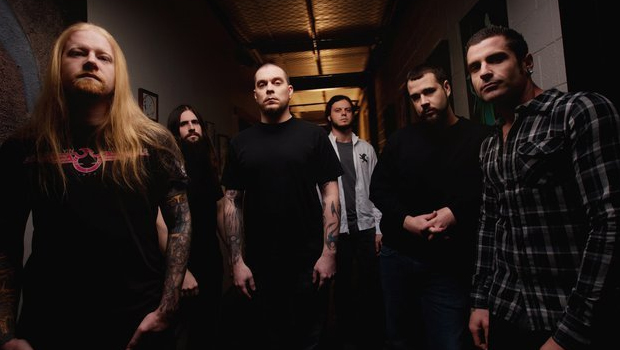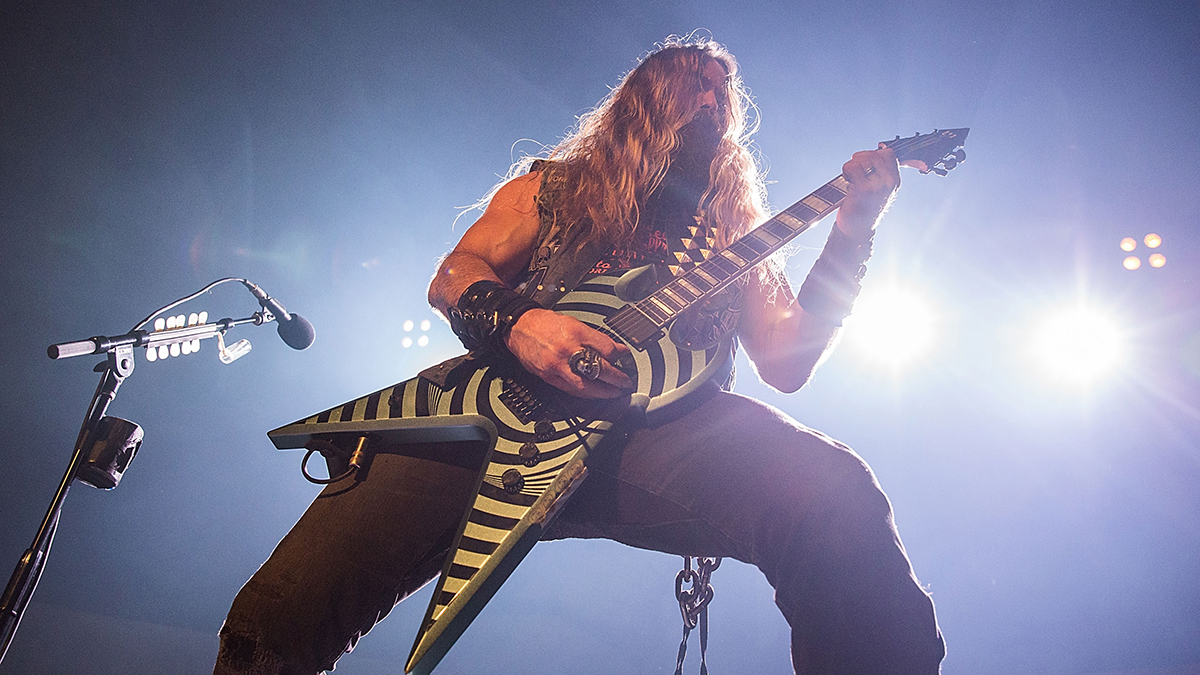All the latest guitar news, interviews, lessons, reviews, deals and more, direct to your inbox!
You are now subscribed
Your newsletter sign-up was successful

One of the original leaders of the New Wave of American Heavy Metal movement that kicked nu-metal aside and reopened the doors for speedy, chunky riffs and guitar solos, Chimaira have also been one of the most consistent bands of that initial class of new-age headbangers.
Despite a rotating cast of members, the band have put out a solid album more or less every two years since the band began. Their secret? Keeping the heart of the band (and core songwriting duo) of vocalist Mark Hunter and lead guitarist Rob Arnold intact.
On their sixth studio album, The Age of Hell, Chimaira pull no punches with what could simultaneously be their heaviest and most dynamic record yet. Tracks like "Year of the Snake," "Clockwork" and the album's title track pack more than enough wallop to satisfy fans who had any doubts about the band being able to soldier on after the loss of three members since 2009's The Infection.
"When life presents you with a fork in the road, sometimes the choices you are forced to make mentally drain you," Hunter told Revolver magazine, speaking about the track "Trigger Finger" from The Age of Hell. "When those moments occur and you feel threatened, sometimes you have to bring a gun to a knife fight."
The Age of Hell might just be that gun.
GUITAR WORLD: So you guys have had some big changes in the band since The Infection in ‘09. You guys lost three members…
ROB ARNOLD: Yeah, towards the end of last year our long time bassist Jim LaMarca decided it was time to throw in the towel, retire and do the family thing at home. He is also a barber -- he always cut our hair on the road for years. His family has a barbershop business and all that, and he decided that was what he wanted to do.
All the latest guitar news, interviews, lessons, reviews, deals and more, direct to your inbox!
And then also our drummer Andy [Herrick] and our keyboard player Chris [Spicuzza] -- earlier in the year made the decision they didn’t want to move forward with making the record. And that was that. You know that sort of thing happens. We’ve been together for a long time and changes come up in peoples' lives. Guys come in and they have to decide if they really want to continue for the long haul or make other changes in their life, and changes in their lives are what those guys decided to do.
Do you think the fans will be able to tell that these changes influenced the band and the new album in any way?
Well, I think that at first the fan reaction was definitely like, "Whoa we can’t believe this is happening." But we assured the fans that things wouldn’t change too much. I think with a lot of bands new members bring fresh energy and reinvigorate a band, and that’s what we were counting on.
So we got Emil Werstler from Daath, Sean Zatorsky from Daath, and Austin D’Amond from Bleed the Sky -- who is also in my side project The Elite. I’ve known Austin for a while and knew he was a great drummer. So we brought these guys in and it was exactly that, they were totally excited, glad to being doing it, pumped on the music. We did a little tour around Ohio and that went great. The fans seem to react real well to that. We’re super tight and moving on.
Did those guys get to contribute much to the songwriting process for the new album or was that already in place?
No. Actually we had already finished the album before that tour even happened. Basically Mark and I made the album, along with Ben Schigel -- our long-time producer -- who played drums for the record. He had been playing drums with us for a couple years, just having fun, and Mark was in a band with him before Chimaira and we just knew he would do well for us.
We wanted to make the record and then incorporate new members. Rather than just taking a shot with new members, we wanted to keep the core songwriting between Mark and I there for the record and then see what happened after that.
So talk about your gear set up on the new album a little bit.
I just went with old faithful, which are my ESP customs, based off of M-1000’s, the RA3 and RA2. Same amp formula we have always used, which is the Peavey 6505 Plus through our Mesa cabinet and combined with a Bogner Uberschall through a Bogner cabinet and we just blend the two tones.
Basically one tone per side, but miked twice on each cabinet so that there are actually four signals going through. And then on top of that all the overdubs and solos.
In terms of effects, just used on-board plug-ins that Ben Schigel had with his Pro-Tools rig. I didn’t really use any hard effects except the first track, "The Age of Hell," where I used a Dimebag Crybaby From hell. It’s not what I use live. Live I use a Crybaby preset from Digitech GSP1101.
You actually started touching on my next question, which would be how, does your live set-up differ?
Same as the studio set up. [I] just try to keep it meat and potatoes.
Do have something you would consider your secret weapon as far as your guitar sound?
I would say the secret weapon if there were one, would be technique.
I use the analogy a lot that Eddie Van Halen could plug up through a JC Penny catalog Harmony guitar, with a Pig Nose amp, and still rip it to shreds. The only thing I would recommend for the rig is that ISP Decimator, because a lot of young players get there first half-stack and don’t even realize that the feedback between chug riffs is annoying and not something you would like to hear in a live setting.
I remember there was a point we didn’t even realize noise reduction existed. We started out with the MXR Smart Gate and then we went to the Boss NS-2, and then finally found the ISP Decimators. And that’s the trick. It keeps your tone super solid and strong but at the same time it's just completely silent between the breaks in the riffs. And I think that’s professional. You know when you go see Metallica you don’t hear feedback in between the riffs in sad but true and that’s what we were aiming to get and we found that in the ISP Decimator.
The Age of Hell is a very dynamic album and production-wise came out very balanced. There's been a lot of backlash over that over-compressed sound that been on some big-name records lately. It’s nice to hear the quiets and louds and it's not all the same level.
Well, thank you. I’m glad you think so. Mark and I have always strived since day one to get the best recordings possible. We’re constantly learning and trying new things and studying. We think that great sonics are very important to a band's sound. Perhaps the reason we are here today.
Yeah, it definitely came out well in this record, especially on "Beyond the Grave"; when that intro kicks in it's kind of nice a breathing point after "Year of the Snake."
Yeah, very big and open.
So this interview is going to be coming out before your album hits. Is there any message you would like to send to fans about what they should expect from this album?
A lot of excitement. More dynamics than you’ve ever heard on any Chimaira album. A fresh energy.
I think for Mark especially, there is a new freedom in his vocals that you’ve never heard before. A breath of fresh air or a sigh of relief in that department. A lot of cool rifts, great guitar tones, awesome drumming -– really in the pocket drumming with a lot of creative fills. I think overall a lot of people are going to be really happy and surprised. It’s different than any album that we’ve ever done in the past, which is something that we are very proud of, that every record is different from the last. But you can totally tell its Chimaira.
The new album from Chimaira, The Age of Hell, will be release on August 16 through eOne Metal
Josh Hart is a former web producer and staff writer for Guitar World and Guitar Aficionado magazines (2010–2012). He has since pursued writing fiction under various pseudonyms while exploring the technical underpinnings of journalism, now serving as a senior software engineer for The Seattle Times.

